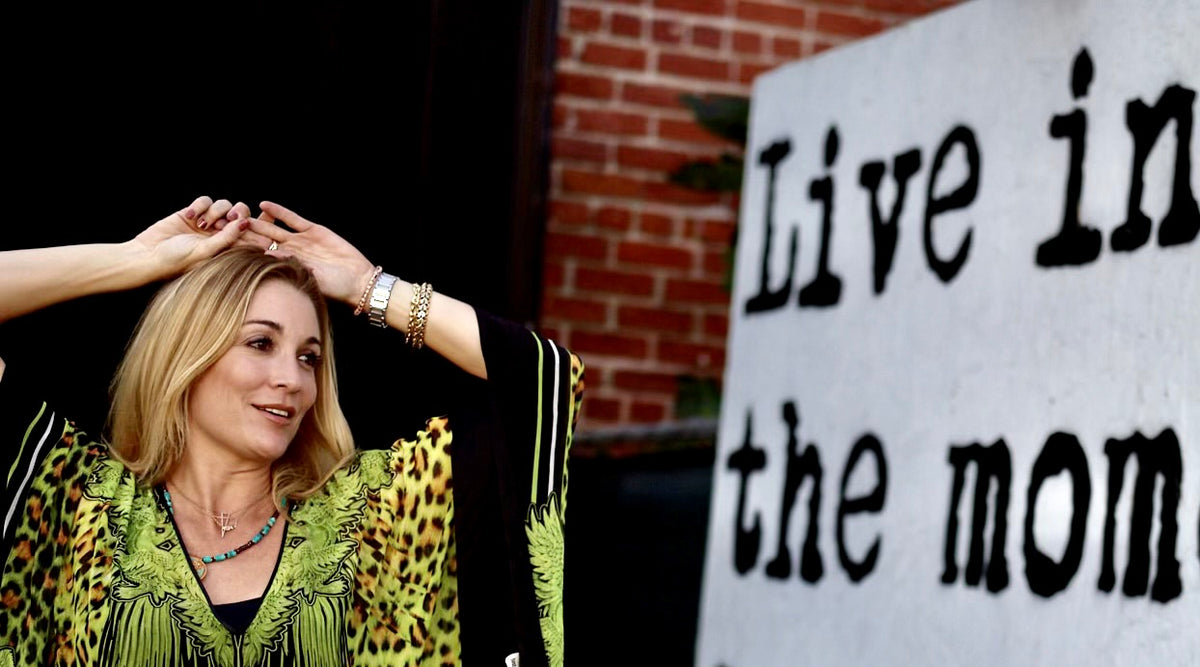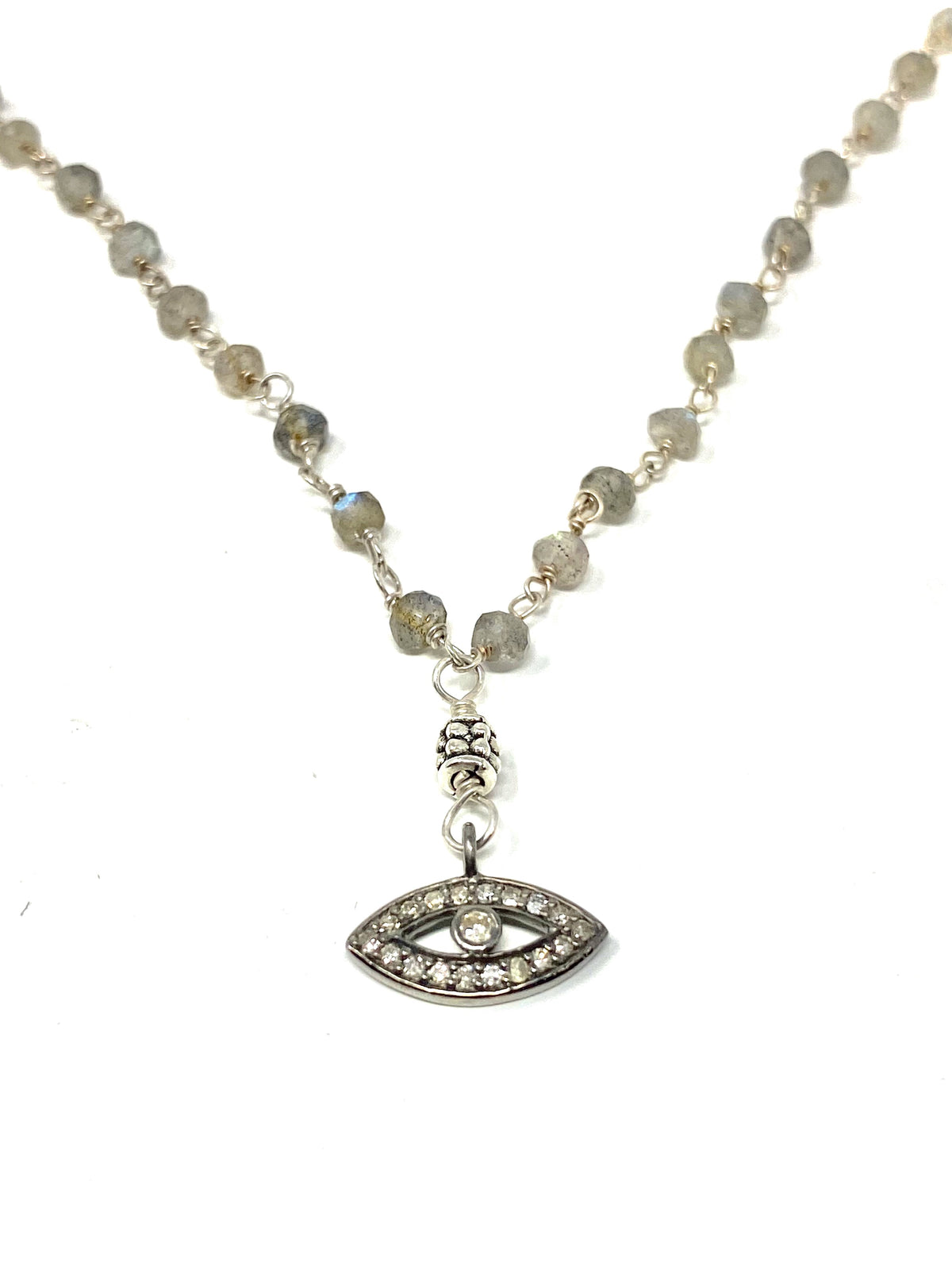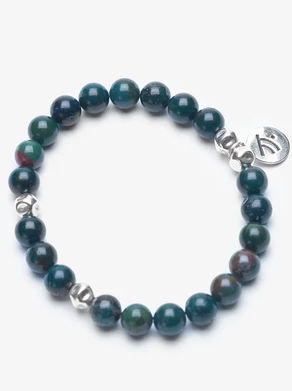
The Significance of Mala Beads
The interconnected nature of beauty and spirituality plays a crucial role in the way I travel and the way I view the world. I feel most connected to the universe and to my own energy when I am immersed in something I love. Still, there are times when I feel off balance and yearn to find my center again. At those times, I am grateful for the centering power of my malas.

Understanding mala beads
Mala beads grew out of the roots of both Hinduism and Buddhism beliefs and practices. Over 3000 years ago, Indian people practiced a form a meditation called Japa, which translates to "recite." To keep their minds focused during meditation, people began using strings of beads to pass through their fingers. The beads became known as a mala, a Sanskrit word meaning "meditation garland."
The significance of 108 stones
The number 108 holds sacred significance in Hinduism. If you look at the distance between the Sun and Moon in relation to the earth, the distance is approximately 108 times their respective diameters. Yogis may point to the 108 sacred sites found throughout India or the 108 marma points, sacred places on the body.
Mala beads are sometimes—but not always—comprised of 108 beads, with an additional bead or pendant used as a "guru bead." The guru bead works as a starting and ending point for your meditation, with the other beads circling it as the earth circles around the sun.
Malas in the Jada Jo Collection
My collection currently offers two mala strands. Truly, though, I feel like many of the pieces found in my collection offer the centering and healing power of a traditional mala. As you browse the collection, pay attention to the chakras balanced by the different gemstones (noted in the product descriptions) and seek out pieces that speak to you and what current needs you seek to meet.
The Jasper Mala works to stimulate and balance your heart, throat, and third eye chakras. Aqua Terra Jasper is known as the "Supreme Nurturer" and helps open the mind and tap into creative energies. Aquamarine, a stone of courage and protection, helps calm fears and phobias.

The Rosewood Mala works on the same chakras as the Jasper (heart, throat, third eye), but it uses a different combination of stones. The varied meanings of the two stones in this mala channel slightly different energies. Red Sandalwood helps improve circulation, and Moss Agate encourages new beginnings.

Different types of malas
You may have noticed smaller chains of beads and wondered if they are also mala beads. Other factors of 108 can also be used for the garlands, such as 54, 27, or even 18. The importance of the beads rests in the circular nature of the piece and the wearer's focus on their use.
I once wondered if a Catholic rosary subscribed to the same numeric significance as the ancient mala. However, I discovered Catholic rosaries, or prayer beads, are crafted around the concept of a decade, which includes ten prayer beads, plus separator beads between the decades. A five-decade rosary seems to be the most common, consisting of 5 groups of ten beads, plus larger separators, plus a 3-bead grouping, and a cross—for a total of 59 beads.
How to use mala beads
Mala beads still work beautifully as they were originally conceptualized—as a tool to use in meditation. When you're feeling the chaos of the world causing imbalance in your life, sit with your beads and breathe calmly. When ready, repeat a mantra as you pass the beads through your fingers, working your way around the circle. You can incorporate the practice daily, weekly, or as it best serves you.
If you find you're not best served by the meditative routine malas offer, you may still find comfort in wearing a mala. Choosing beads with particular significance can stimulate your different chakras, allowing you to balance your energies. I often find myself searching for the smooth solidity of the beads if I'm feeling nervous or need to think more deeply about a problem I'm trying to solve.
What meditative practices do you use in your life?
Leave a comment
Comments will be approved before showing up.
Also in Blog

Jada Jo: A Five-Year Journey

Exploring Birthstones: Diamond


